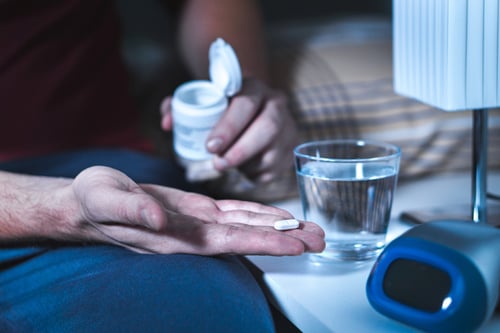Proven and Successful Treatments For Addiction
Addiction, also known as substance use disorder (SUD), is listed in the Diagnostic and Statistical Manual of Mental Disorders, Fifth Edition (DSM-5), as a chronic mental health disorder. The Mayo Clinic explains addiction as a disease “that affects a person’s brain and behavior and leads to an inability to control the use of a legal or illegal drug or medication.” An individual that struggles with addiction will prioritize satisfying his or her craving above all else. Addiction will affect every facet of one’s life, and if left untreated it can lead to strained relationships, financial hardship, employment challenges, legal complications, as well as emotional, physical, and psychological consequences. There are many different types of treatment options and therapeutic modalities used to treat addiction. The recovery process is entirely personal, and it will be directly informed by one’s personality, mental health, and emotional needs.
Customized Treatment Plans
Ample support and a personalized treatment plan will provide an individual with the highest potential for a successful recovery. Depending on one’s needs, tailored treatment plans may be comprised of one or more distinct therapeutic modalities, including but not limited to the following:
- Cognitive behavioral therapy (CBT): can help correct irrational, inaccurate, and/ or distorted thoughts as well as help an individual develop skills and healthy coping mechanisms for reducing anxiety and stress while remaining sober.
- Expressive arts therapy (e.g., play therapy, art therapy, music therapy, drama therapy, sand therapy, etc.): provides an alternative medium to express, process, and integrate one’s thoughts and feelings surrounding the recovery process.
- Eye movement desensitization and reprocessing therapy (EMDR): utilizes guided eye movement techniques to help process one’s memories, thoughts, and emotional associations in relation to abusing drugs and/ or alcohol.
- Dialectical behavior therapy (DBT): is based on the principles of CBT, but places greater emphasis on the psychosocial aspects of treatment. Through DBT individuals can learn healthy coping mechanisms and useful techniques for managing stress, regulating emotions, and improving relationships with others.
- Interpersonal therapy (IPT): focuses on how a person’s communications and interactions with other people affect his or her own mental health. Through interpersonal therapy an individual will learn to resolve and adjust to unhealthy interpersonal problems, resulting in a symptomatic recovery.
Treatment plans can also include refining one’s daily habits (e.g., practicing mindfulness techniques, exercising regularly, developing healthy sleeping habits, eating nutritiously, etc.) to further improve one’s overall health and wellbeing. It is important to note that there is no universal treatment method that proves successful for every person struggling with substance abuse and/ or addiction, as everyone has nuanced needs when it comes to the recovery process.
For Information and Support
Substance abuse and addiction can be incredibly dangerous and can result in severe short and long-term consequences. If you or someone you know is suffering from substance abuse or addiction, please get help as soon as possible. The earlier you seek support, the sooner you and your loved ones can return to leading happy, healthy, and fulfilling lives. There is no reason to go through this alone, and we are here to help. Please feel free to reach out to us for further information or with any questions regarding substance abuse or addiction. We are available anytime via telephone at: 213-389-9964, or you can always email us at: info@friendlyhousela.org.



